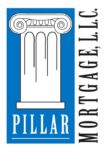What is mortgage insurance? How it works and when it is required
Mortgage insurance is a way of protection for the lender. You have to pay for mortgage insurance if you get an FHA mortgage loan or you are not able to put down more than 20% on a conventional loan.
The target down payment for a home is 20% of the buying price. However, that’s too much for most home buyers.
Mortgage insurance enables home buyers to put down a smaller down payment and qualify for a home loan.
For conventional home loans i.e. home loans that are not federally guaranteed or insured, the lender will be needed to pay for private mortgage insurance (PMI), if their down payment is less than 20%.
For FHA mortgage loans backed by the Federal Housing Administration, you will have to pay for the mortgage insurance regardless of the amount you put down as a down payment.
With VA mortgage loans, backed by the Department of Veterans Affairs, and USDA mortgage loans, backed by the Department of Agriculture, mortgage insurance is not required. However, they do have some fees that are meant to protect lenders just in case borrowers default. In this case, therefore, you will still get an extra cost with these mortgage loans in exchange for the required low down payment.
How does mortgage loan insurance work?
The cost of mortgage insurance is on you as the borrower and is meant to cover the lender. Mortgage insurance will pay the lender a portion of the principal amount in case you stop making your mortgage payment for whatever reason. In the meantime, you are not yet off the hook for the loan payment. You could also lose your house if you fall too far behind in payments.
It’s important to note that this mortgage insurance is different from mortgage life insurance; mortgage life insurance pays off the remaining mortgage if the borrower dies. It is also different from mortgage disability insurance, which pays off the mortgage loan if the borrower becomes disabled.
PMI vs MIP and other fees
Mortgage insurance is mostly a bit different depending on your type of mortgage. Here are some of the things you need to know about government-backed and conventional mortgages.
PMI for conventional mortgages
Most lenders will offer conventional home loans with very low down payment requirements – in some cases the down payment can be as low as 3%. In this situation, the lender will most likely require you to pay for private mortgage insurance (PMI), since your down payment is below the required 20% or higher.
Before purchasing a home, you could use a PMI calculator to help you get an estimate of the cost of PMI you will have to pay. This will obviously vary depending on the size of your mortgage, credit score and other factors. Which will vary according to the size of your home loan, credit score, and other factors. Normally, the monthly PMI premium will be included in your mortgage payment. You can also ask for a PMI cancellation once you have over 20% equity in your home.
FHA mortgage insurance premium (MIP)
FHA loans have minimum down payments of as low as 3.5% and easier credit qualifications compared to conventional loans. Most FHA home loans will need you to have a mortgage insurance premium upfront and also an annual premium, regardless of your down payment amount. The upfront premium for this loan is 1.75% of the loan amount. The annual premium ranges from 0.45% to 1.05% of the average remaining balance of the home loan for that year.
You pay the annual MPI in monthly installments for the life of your FHA mortgage loan if you put down less than 10%. If you are able to put down over 10%, you pay MPI for 11 years only.
USDA guarantee fee
USDA kind of loans come with a zero-down-payment for people willing to buy homes in rural areas. They however charge two kinds of fees; an upfront guarantee fee and an annual fee. For the upfront guarantee fee, you pay for it only once at a 1% rate of the loan. For the annual fee, you pay every year for the life of the loan, at a 0.35% fee of the remaining loan balance for the year – this is divided into monthly installments and included in the mortgage loan payment. However, the federal government evaluates the fees each fiscal year and could make some changes to them. Nevertheless, your fee amount won’t change since it is fixed once the loan closes.
VA funding fee
VA mortgage loans require no down payments and have lower interest rates for active, retired, or disabled military service members, some National Guard members and reservists, and also eligible surviving spouses. The VA mortgage loans do not need mortgage insurance. However, most borrowers will have to pay a funding fee that ranges from 1.4% to 3.6% of the loan amount.
How can I avoid mortgage insurance?
Some states have first-time home buyer programs that offer mortgages with low-down payments with reduced or no mortgage insurance requirements.
Generally, for conventional home loans, if you are able to put at least 20% down for the home, you can avoid mortgage insurance.
We at Pillar Mortgage can help you through every step of the entire mortgage process from start to finish. Call us now!

